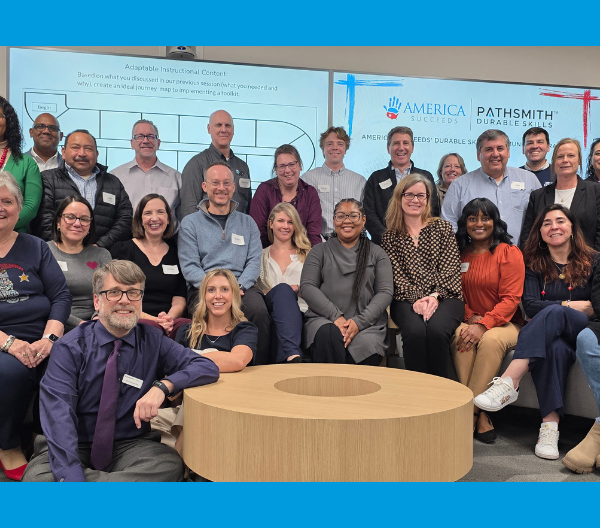Catherine Truitt, the North Carolina State Superintendent of Public Instruction, has dedicated her career to improving education systems at both the state and national levels. With over 25 years of experience as a classroom teacher, school turnaround coach, and higher education leader, she has focused her efforts on preparing students for success in both academics and the workforce. Superintendent Truitt has spearheaded initiatives like Operation Polaris and the state’s Portrait of a Graduate, driving forward a vision for student-centered, workforce-aligned education in North Carolina.
In the ever-evolving landscape of public education, few leaders have made as significant an impact in one state as North Carolina State Superintendent Catherine Truitt. Since taking office in January 2021, Superintendent Truitt has faced the immense challenge of steering the state’s education system through the pandemic while laying the groundwork for a more robust, future-oriented approach to learning. Her leadership has been encapsulated in the state’s four-year strategic plan, Operation Polaris, which serves as a beacon guiding North Carolina’s schools towards better student outcomes and post-secondary readiness.
Operation Polaris: A Strategic Vision
Operation Polaris launched in April 2021 asa four-year strategic plan developed by the North Carolina Department of Public Instruction (NCDPI) to help public schools recover from pandemic-related challenges and improve the state’s K-12 education system for the future. As Superintendent Truitt explains, the plan was designed not just to recover from the pandemic’s impact but also to tackle persistent issues that have plagued public education for years. “My 25 years working in education really culminated in Operation Polaris,” she says, reflecting on how her experience shaped the plan’s development.
One of the unique aspects of Operation Polaris is its collaborative nature. Recognizing the limited regulatory authority of the State Superintendent over local districts, Superintendent Truitt emphasized the importance of involving a broad range of stakeholders. This included not only educators and district leaders but also community members, legislators, and the governor’s office. “We wanted to create a strategic plan that would support districts in a way that resonated with them,” Superintendent Truitt notes. The result is a plan that is both ambitious and adaptable, with a clear focus on benefiting students, educators, and the workforce.
A Focus on Workforce Readiness
A key pillar of Operation Polaris is its alignment with workforce development. In this context, the Portrait of a Graduate initiative plays a crucial role. Aligned with America Succeeds’ research on durable skills, North Carolina’s Portrait of a Graduate aims to define the seven most valuable skills as defined by stakeholders across the state. These are skills that go beyond traditional academic knowledge, encompassing qualities such as critical thinking, communication, and leadership.
Superintendent Truitt highlights the importance of these skills, noting that they are in high demand among employers and beneficial to students regardless of their post-secondary path. “Our Portrait of a Graduate needs to be aligned to workforce development,” she emphasizes. The initiative is part of a broader effort to provide a more comprehensive measure of student success, moving beyond the limitations of standardized testing to include a broader set of skills and competencies.
Superintendent Truitt also emphasizes how crucial career exploration and exposure to professional working environments are. Not only do career planning and work-based learning serve as key durable skills developers, but they give students the power to make informed decisions about their postsecondary plans before graduating high school. Superintendent Truitt and the NCDPI advocated for the passing of career development plan legislation, which went into effect in July, 2024. This legislation requires middle and high schools to facilitate student completion of a Career Development Plan. “Students can’t become what they can’t see, so we want that exposure to come early and often and we want for community organizations and businesses to interact with students as well, because those partnerships are really valuable as we seek to make sure that all high school students have a plan after graduation.”
Supporting Teachers and Students
Operation Polaris takes a comprehensive approach to education, emphasizing both academic and non-academic skills. This strategy is already showing promising results, particularly in how it supports teachers to integrate durable skills into their lesson plans.”We don’t want to make more work for our teachers,” Superintendent Truitt explains. “We want to make things as easy as possible.” To this end, the initiative provides teachers with practical resources such as rubrics, performance tasks, and other tools designed for seamless integration into existing curricula.
The strategic plan’s impact is visible in multiple areas, including in the state’s literacy efforts. Superintendent Truitt points to the success of the Science of Reading professional development initiative, which has led to significant improvements in student reading levels. During the 2023-24 school year, the percentage of North Carolina’s kindergarten students on track for core instruction reading grew by 40%, compared to a national average of 25%. This success is particularly noteworthy across all subgroups, with double-digit growth for African-American, Hispanic, and American Indian students.
Evolving Accountability Systems
As education systems evolve to meet the demands of the 21st century, Superintendent Truitt is also advocating for changes in state accountability models. She argues that current systems, which rely heavily on standardized test scores, do not adequately reflect the quality of education or student preparedness for life beyond the classroom. Instead, Superintendent Truitt proposes a more nuanced approach that includes measures of proficiency, growth, opportunity, and readiness.
“One letter grade is not adequate to define school quality,” Superintendent Truitt asserts. She believes that a more comprehensive accountability model would better capture the diverse aspects of education that contribute to student success. This includes not only academic achievement but also extracurricular activities, school climate, and readiness for post-secondary pathways.
Looking Ahead
As Superintendent Catherine Truitt continues to lead North Carolina’s education system through Operation Polaris, the state stands as a model for others to follow. Her focus on collaboration, workforce readiness, and a more holistic approach to measuring student success is reshaping what it means to prepare students for the future. As Superintendent Truitt herself notes, “We want durable skills to be second nature to our students and their teachers.” With Operation Polaris as their guide, North Carolina’s schools are well on their way to achieving that goal.
For other states looking to innovate in education, the progress made in North Carolina offers valuable lessons in strategic planning, stakeholder engagement, and the importance of aligning education with the needs of the workforce. The future of public education in North Carolina is bright, and it is leaders like Catherine Truitt who are lighting the way.
Learn more about how Superintendent Truitt and the NCDPI are tackling the most pressing problems to provide better outcomes for all:
- Operation Polaris 1.0 and 2.0.
- North Carolina PoG Resources
- Battelle for Kids’ North Carolina PoG Case Study
At America Succeeds, we’re passionate about seeing students across the country equipped with the durable skills they need to succeed in the workforce. How is your state or district prioritizing durable skills development in its education system? We’d love to know!




